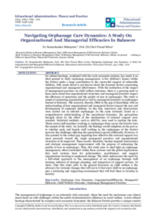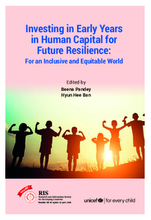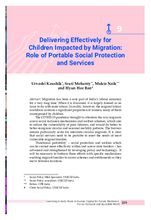childrens_living_arrangement
children_living_without_bio
Displaying 31 - 40 of 427
This study highlights the absence of intimate parental care due to many sociopolitical circumstances in India, which creates a vacuum in fostering early childhood care. The objectives were to determine the dilemmas faced by care providers in the limited resources division between their own and their kin’s child and the invisible social stigma associated with the tag of orphans.
Through this study, the researcher has attempted to view the Child Protection System from the lived experiences of 10 children who are/have been part of the Child Protection System in Delhi, India.
New Delhi - Children in India are being wrongfully incarcerated with approximately 9,681 children found to have been wrongly held in adult facilities over six years from January 1, 2016 to December 31, 2021, a study by London-based organisation iP
The study is aimed at examining organizational as well as managerial practices in orphanages located at Balasore, India to understand how these factors impact the care and development of orphaned children.
In this episode Amanda Griffith of Family for Every Child is joined by representatives of three member organisations who are working to support children's mental health and wellbeing across three continents.
On a hot summer day in June 2010, two Indian children upset with their parents for hitting them left home. The siblings - 11-year-old Rakhi and seven-year-old Bablu - planned to go to their maternal grandparents who lived just a kilometre away. But a few wrong turns and they were lost.
This book focuses on the urgent need for global investments in young children for realizing sustainable development and equitable outcomes for all. Access to services and participation, equity and inclusion are key drivers to realize the rights of the child.
This chapter highlights the need for social protection and welfare benefits to be portable with the ability for migrants families to access entitlements as they move between locations. This chapter focuses on how this is implemented in India's labour economy.
NGO says West Bengal should take the initiative and provide support to the children and their families who were rescued as bonded labourers
Women living in camps for refugees of Bangladesh’s war of independence were told a local care home would look after their children. Decades on, many are still searching for them.




